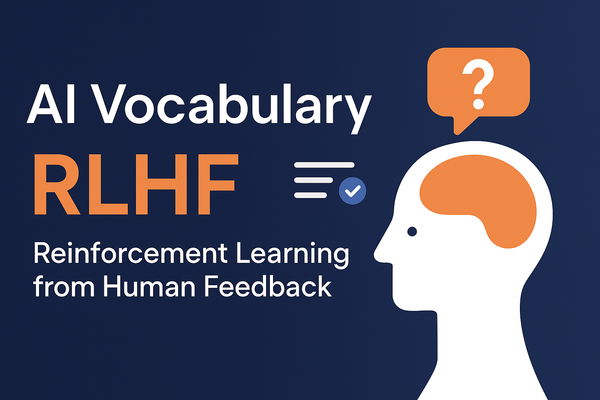What if AI doesn’t just respond to our queries but reads between the lines?

There’s a particular kind of something, let's call it magic, in a conversation. It’s the point when someone answers the thing you meant to ask, not the thing you said.
This is seen as a human pattern; we don't need to prompt a conversation. Sometimes, we can look ahead and see where it is going before we are there. In behavior science, we would likely call it empathy or intuition. In a direct way, without being philosophical, just plain old experience.
Now, AI is beginning to do something similar. And I think that complicates things…
We, for the most part, that is. Don't program systems to “care,” instead we opt for it to “compute.” (This is not always the case, but generally speaking).
Yet here new “advanced” AI models are, tilting their heads at our words and guessing at the meaning beneath them, even reasoning and letting us know it's thinking hard and long about our questions.
Beyond the literal question
Search has always been literal. You typed “best coffee near me,” and you got a list. You typed “how to fix a leaky tap,” and you got ten blue links, a few ads, and maybe if you're really lucky, an actual “how-to video” without 10 minutes of introduction.
No curiosity. No wondering why you asked. Just results.
But increasingly, something different is happening. Ask an AI assistant, “I’m feeling a bit tired,” and it might:
- Suggest a quick breathing exercise
- Check your calendar to see if you’ve overbooked yourself
- Recommend mood-lifting music or an earlier bedtime
It’s not just answering. It’s interpreting.
So, is It already here?
Short answer: yes, but in a subtle, early form. And when I say early, this has been around for a long time. New large language models (LLMs) like GPT-5, Claude, and Gemini are already blending direct answers with contextual guesses about what you really want.
Ask for “meal ideas,” and they might preemptively inquire about your diet, cooking time, or what’s already in your fridge. Some search systems are experimenting with “multi-turn” understanding — remembering that you prefer dairy-free recipes or that you like news without sensational headlines.
It’s not magic. It’s not telepathy. It’s just data, statistical patterns, and conversational histories stitched together to reduce the gap between your words and your actual goal.
Enters the early stages of 2015, where we meet Amy.
In 2015, a startup called X.ai launched “Amy” (and her counterpart, Andrew), both AI assistants you could simply CC into an email chain.
What where their job? To handle the tedious back-and-forth of scheduling. Super handy!
But Amy didn’t just pick times. She learned to infer preferences, avoiding Friday afternoons, respecting time zones, and remembering the client who never wanted early-morning calls. Without explicitly being told, she began making decisions based on patterns of behavior.
It wasn’t mind-reading, but I would stretch it far and call the case an early form of reading between the lines.
While X.ai was eventually acquired, Amy’s anticipatory design seeded a wave of new AI products that act before we explicitly ask. With examples from Google’s AI-powered scheduling suggestions to Slack bots that summarize conversations you didn’t attend. We even see them today in various co-pilot forms.
No, the LLMs don't think about us as we perceive thinking. But in practice, it feels like a tiny step toward something uncanny.
Convenience vs control: How AI “infers” intent
This isn’t the AI deciding to care about you; it’s the AI recognizing patterns you didn’t realize you were leaving behind and here’s what’s happening under the hood:
- Context memory: AI can now remember the thread of your conversation, or even your history over weeks and months.
- Mapping: Instead of matching words, AI maps meaning. “I’m tired” gets linked to “possible causes” and “suggested remedies.”
- Probabilistic inference: The AI predicts what’s likely to be relevant, even if you didn’t ask for it outright.
The leap isn’t in technology alone; is not “new,” it’s in design and intent.
Systems are being built to behave more like companions than databases. We are not meant to pop the hood.
When AI fills in the blanks for us, it’s wonderfully convenient, and I would say it's sometimes eerily so. But I think there’s a cost. The more an assistant predicts, the more it shapes what we see, and by extension, what we think about. Search used to be the beginning of our journey. Now, what's to say it's not the AI’s journey, with us simply reacting to where it leads? (Let's not dive into algorithmic choice architecture).
Privacy in an anticipatory world
So a simple fact remains. Reading between the lines requires knowing the lines exist. In the case of most personal assistants AI’s, that means collecting them aka datapoints.
An assistant AI that anticipates your needs needs datapoints like:
- Your past queries
- Your patterns of behavior
- Your location, calendar, and maybe even biometrics
With this, I think we’ve crossed from search as input to search as observation. And with observation comes the inevitable question of ubiquity:
How much do I want to be seen?
Is the future silent queries?
If reading between the lines is possible today, tomorrow might bring something else, like hearing the question before it’s asked. Well, think about it. In a future scenario, imagine:
- A calendar automatically moves your workout because it “knows” you’ll be exhausted after a long meeting.
- Your fridge orders groceries before you notice the milk is gone.
- Your news feed preemptively filters out topics it assumes will stress you out.
It’s efficient. It’s helpful. It’s unsettling.
(dramatic effect only)
So, to answer my own question: Will AI ever truly “read between the lines”? " with a nonsensical answer:
In one sense, it already does. In another, it never will. Because what’s between the lines is often subjective, fluid, and human. The next decade won’t just be about making AI more anticipatory. It will be about deciding how much we want it to anticipate, and when we’d prefer it to wait for us to ask. This is something we have a responsibility to design.
In other words, the future of search might be less about finding answers and more about negotiating the space between our actual words and intent.




